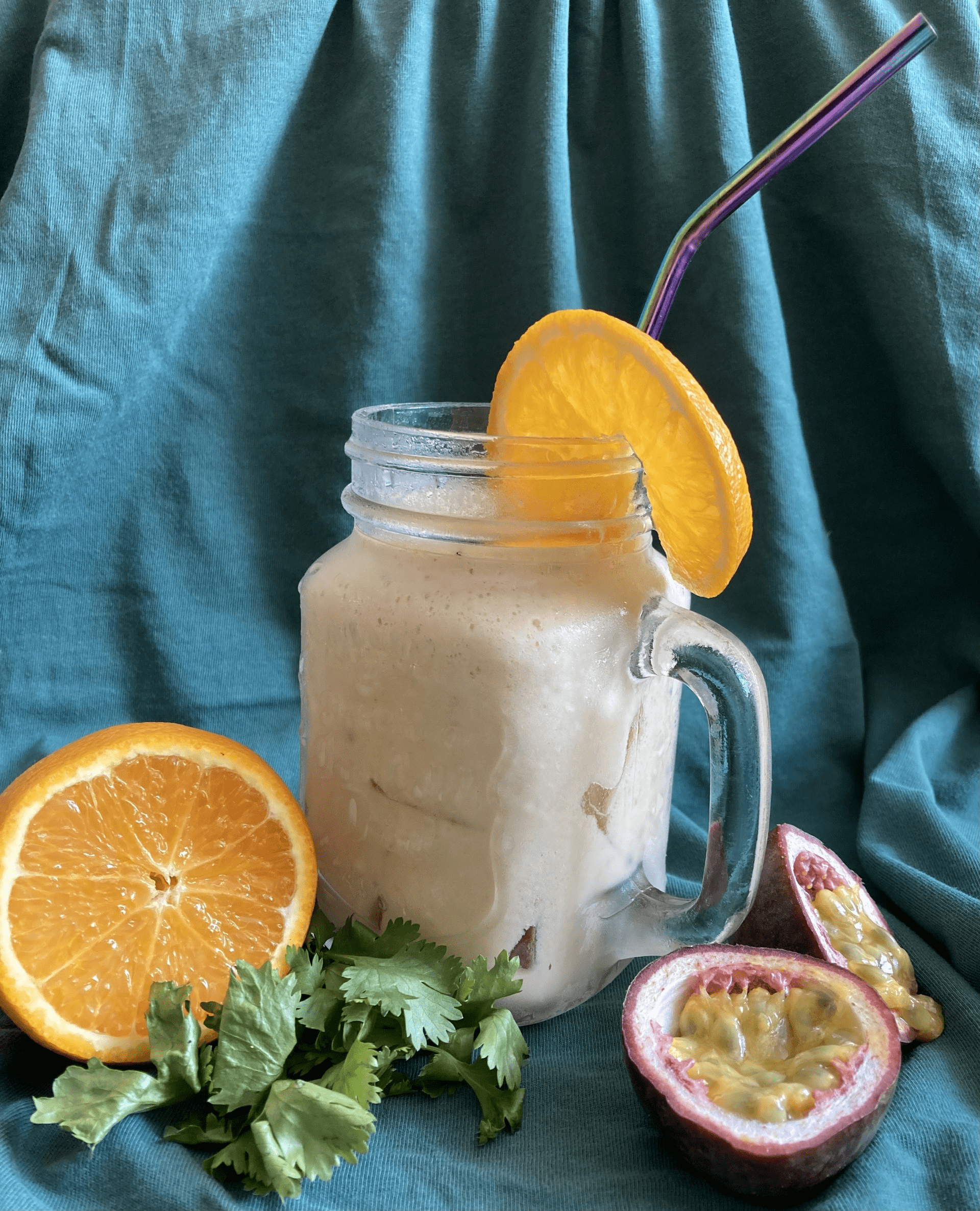Cool and refreshing, smoothies are popular in Malaysia. This one contains some of Malaysia’s abundant fruits and is the taste of a summertime party.
Serves: 8
Dietary: coeliac, vegetarian, egg-free
Contains; milk (yoghurt, milk, skimmed milk powder), peanuts (peanut butter)
May Contain: Soya (Greek-style coconut yoghurt)
Preparation time: 5 minutes
Cooking time: 0
INGREDIENTS
2 cups (200 g) pineapple chunks (fresh or frozen)
3 passion fruit (seeds and flesh)
4 Tbsp (120 g) Greek-style coconut yoghurt,
2 cups (500 ml) skimmed milk;
4 Tbsp (72 g) smooth peanut butter
6 Tbsp (72 g) dried skimmed milk powder,
16 Ice-cubes
METHOD
- Place all ingredients in a blender with six ice cubes.
- Blend until smooth.
- Best served poured over ice.
This recipe has been donated by Angela Thorpe, a Student Dietitian at the University of Winchester.
NUTRITION INFORMATION
Per serving: 155 ml
Total calories: 142 kcal
Fat: 6.1 g
of which saturates: 2.40 g
Carbohydrate: 13.0 g
of which sugars: 11.0 g
Fibre: 2.1 g
Protein: 7.8 g
Salt: 0.29 g
NUTRITION FACTS
- A portion of this smoothie is a good source of Calcium and Protein.
- Calcium is needed for the maintenance of normal bones and teeth.
- Protein contributes to the maintenance of normal bones and muscle mass.
- A portion of this drink is also a good source of potassium, iodine, riboflavin, Niacin, phosphorus, B12, Biotin and vitamin C.
- The majority of the sugar present in this drink is lactose from the milk. This is not considered to be a ‘free’ sugar which would be harmful to teeth.
VARIATIONS
- To make this smoothie suitable for a vegan diet, substitute cow milk for plant-based milk.
- Passionfruit can be quite bitter when blended, especially for a small child’s palate. An alternative would be to use peach as a variation.
Consumer Tested by Luke Maher, a Student Nutritionist at Atlantic Technological University.
Checked by Kathy Lewis, R.Nutr.,
© 2023 The Caroline Walker Trust

